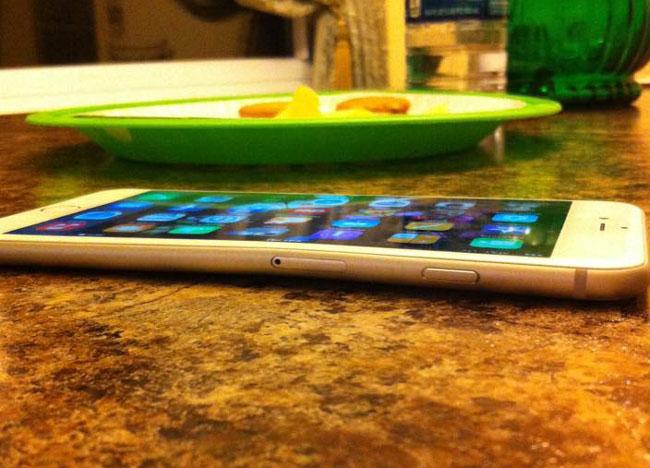It is not the first time it happens. For years we have evidence that aluminum as housing for smartphones has its cons and one of these is the low flexural strength. The first cases occurred with the iPhone 5, the first Apple made with aluminum. With iPhone 5s cases were also given. Now with the iPhone 6 Plus(iPhone 6 Plus Cases) history repeats itself, but in this case its larger and thinner speak further conditioning factors.
The use of metallic materials in the manufacture of smartphones has been considered from the beginning as a distinguishing feature that provides a very important plus point of the design. So much so that companies like Samsung have been forced to replace plastic with aluminum in some of their top models to keep up the circumstances. However, metal alloys have their aesthetic appeal, but also some drawbacks that the plastic or does not experience or lesser degree.

Intrinsic properties of aluminum
One drawback of aluminum casings is that they are more likely to be damaged at its surface, especially on the sides. The nicks and scratches are common on some phones of this type.
Another of the disadvantages presented by this type of construction is the flexural strength. While plastic has greater ability to return to its original shape after enduring a flexor effort, the rigidity of aluminum is a double-edged sword in this regard. And is that once the metal is folded no "back into place."
Some users of the iPhone 5 and iPhone 5s have experienced in the past. Sit with the smartphone tucked into the pocket of trousers can be a risk. While it is true that the percentage of users affected to date should be relatively low (since otherwise the impact of these flaws transcend much stronger) in the case of the iPhone 6 Plus could find ourselves in one of those cases more noticeable.

First cases
First, just days after going on sale new models begin to register the first complaints in the forums by users who prefer iPhone move. As noted by MacRumors, yet were not disclosed many cases, but they have found that the number is increasing. It will be a matter of time that can quantify the number of affected to determine if the problem is at all, as in the past, or if instead becomes "pandemic."
For now, some of those affected have explained that they have seen their iPhone have doubled within two days of purchase. Perhaps the most detailed case was that of a man who recounts how he noticed the deformation after attending a wedding. The return trip, eight hours total drive and moments when he sat at the wedding was the time the iPhone 6 Plus was exposed in the pocket of his pants.

Possible to failure in the design of the larger model?
A key point that can create more problems than anticipated Apple. And the iPhone 6 Plus(best iphone case) is thinner than the last two generations of iPhone (7.6 mm compared to 7.1 in the current model). To all this we must add that the height of phablet also increases noticeably as the iPhone 6 Plus recorded 158.1 mm while the iPhone 5 and iPhone 5s remained in 123.8 millimeters. This difference is remarkable and does not escape the effects of physics. It is expected that the Apple technicians and designers have taken into account this constraint and -resistencia- characteristics of the material used. A miscalculation could make the iPhone 6 Plus was much more susceptible to this type of effort (flexor).

Therefore, to rule out any possible defect will have to wait a few weeks, when you have distributed a number of iPhones more than acceptable for determining the rate of affected, if they are coming to light more cases of bent Plus iPhone 6. Will it happen the same with the iPhone 6?
|
Vacío
|


